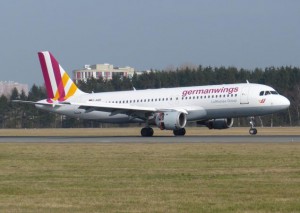How Will the Germanwings Crash Change Airline Pilot Regulations?
Andreas Lubitz, 27, is suspected of deliberately crashing Flight 4U9525 into the French Alps on March 24th. He killed himself, along with the 149 crew members and passengers on board. The crash is suspected to be a suicide mission.
 What does this mean for the relationship between mental health confidentiality and the safety for airline passengers?
What does this mean for the relationship between mental health confidentiality and the safety for airline passengers?
History of Pilot Suicide Attempts
Between 2003 and 2012, eight of the 2,759 fatal aircraft crashes were suicide driven.
In 1994, a FedEx cargo jet was deliberately crashed by a disgruntled pilot. And in 1987, a crew member shot two pilots dead on PSA Flight 1771 in an assumed suicide driven crash as well.
Both of these incidences resulted in new procedures for airline pilots. Because of these crashes, they are now required to go through the same security measures as passengers.
Current Protocol Concerning Pilots’ Mental Health
Currently in the U.S., pilots are required to renew their medical certificate once a year if they are under 40, and every six months if they are above. Psychological tests, however, are not required. Pilots are expected to disclose their mental health condition, or come to a doctor with concerns of mental health issues.
In Germany, psychological tests are part of the annual medical exam. But access to medical records are only available to aeromedical examiners, not airlines themselves.
Lufthansa, Germanwing’s parent company, requires psychological assessment of the pilots who work for the airline. Despite confidentiality laws, doctors and nurses are required under law to report any sign of behavior that can be deemed as threatening to public safety. But, it is very hard to diagnose a pilot with a mental illness when it is up to the pilot themselves to disclose this information.
Changes Being Made
German lawmaker Dirk Fischer, is demanding that airlines have access to pilots’ medical records.
In the U.S., it is required that two crew members be present in the cockpit at all times. Many other countries do not have this same requirement. Because of the Germanwings crash, airlines such as Norwegian Air Shuttle, Britain’s EasyJet, Air Canada, Air New Zealand, and Air Berlin all changed their policies to match the one of the U.S.
Who Will Be Held Liable for the Crash?
Most likely, a civil liability lawsuit with ensue, and Lufthansa will be held responsible. Article 21 of the Montreal Convention outlines that the airline is “strictly liable” for damages up to $113,100 Special Drawing Rights. Beyond this amount, Montreal also states that an airline is liable for any further damages as long as the plaintiff can prove they are responsible.
If the airline can prove that “the damage was not due to the negligence or other wrongful act or omission of the carrier or its servants or agents” or that “such damage was solely due to the negligence or other wrongful act or omission of a third party” they may not be held liable. But in this case, the probability Lufthansa will not be held liable is extremely low.

Comments